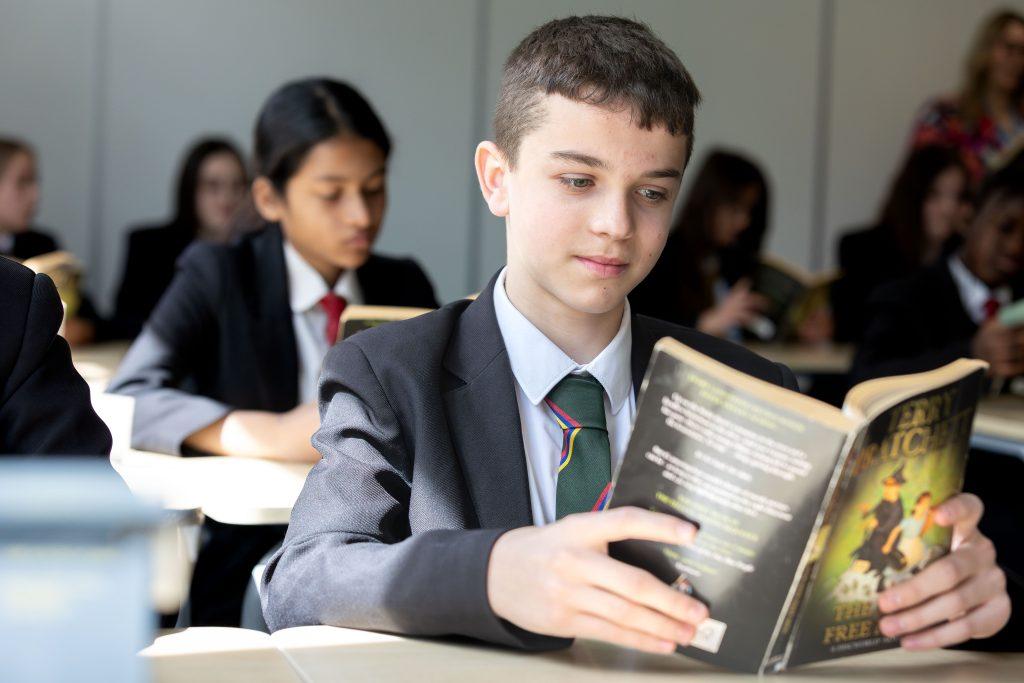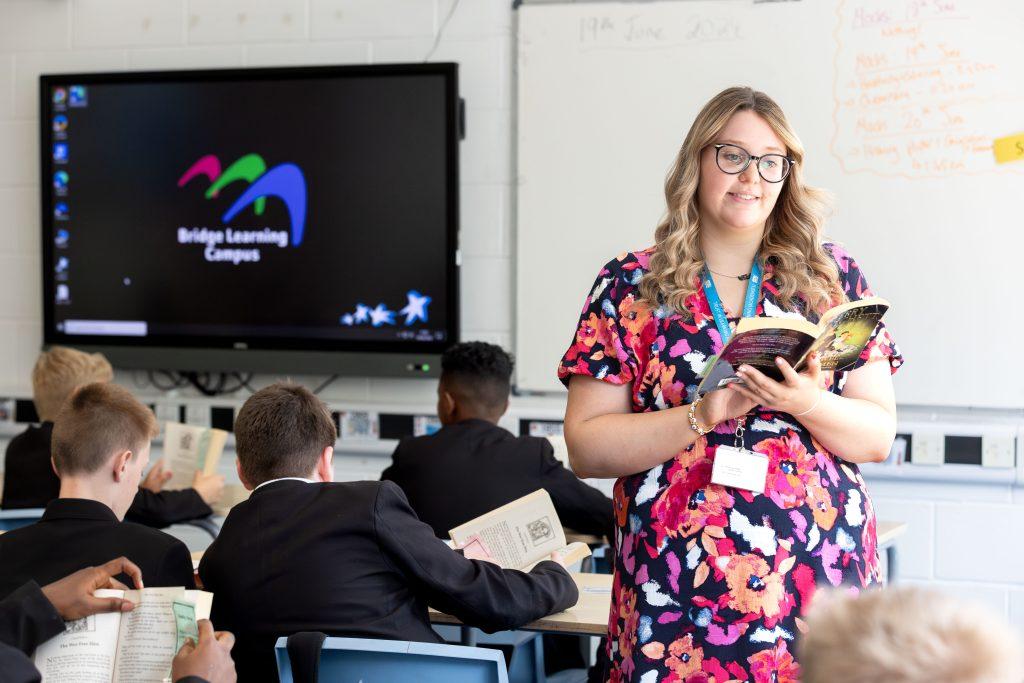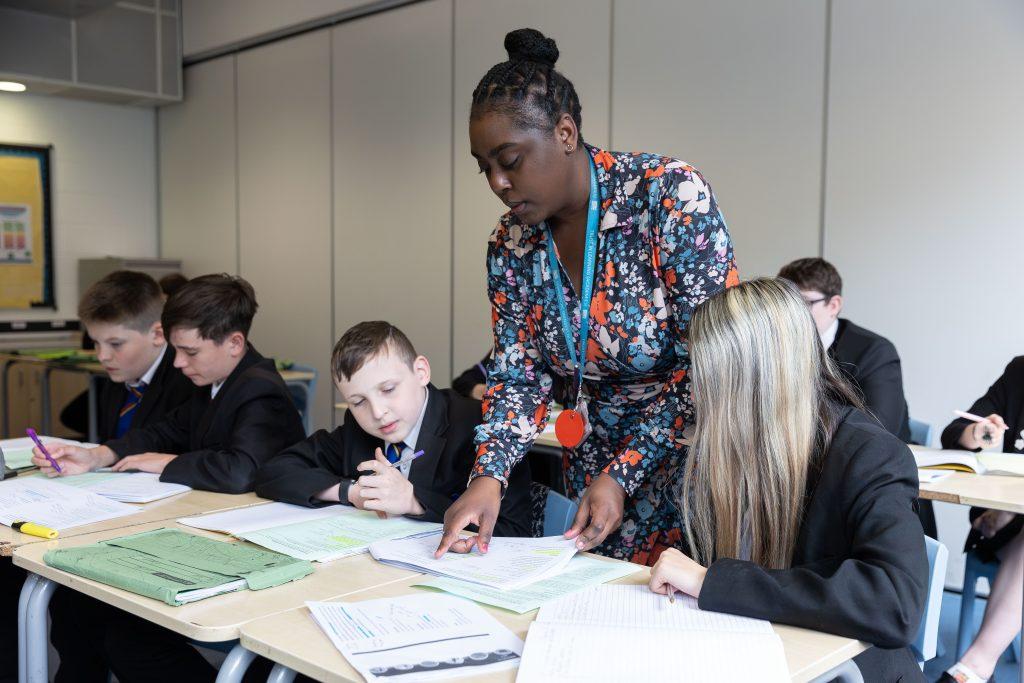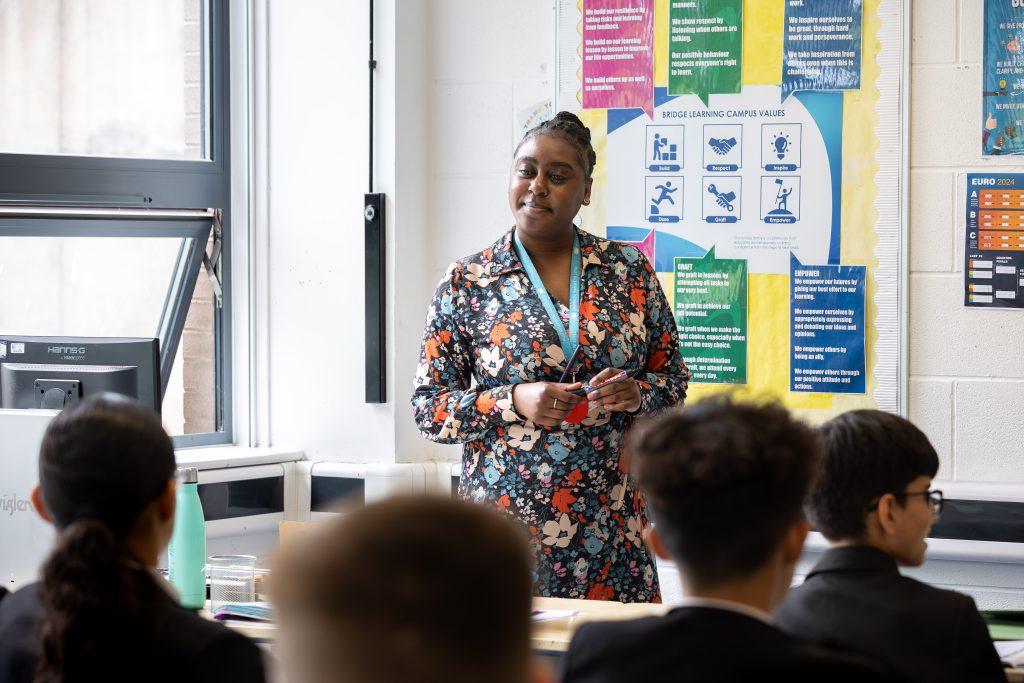Intent
The English curriculum has been meticulously designed to provide opportunities that challenge, inspire, and promote curiosity among students. It aims to develop a passion for the subject, fostering resilience and encouraging articulation of topics that are both engaging and inclusive. By daring pupils to think independently, empathetically, and critically about local, national, and international ideas, the curriculum prepares them not only for success at GCSE but also equips them with essential skills for the real world.
In addition, the curriculum seeks to cultivate cultural capital and instil British values, ensuring that students are well-rounded individuals ready to thrive in a diverse society. It is a progressive curriculum that builds on the foundations laid in Key Stage 2, facilitating success, progress, and enjoyment of our subject throughout their educational journey.
To optimise engagement and interest, the curriculum covers a diverse range of topics, writers, and perspectives. This diversity is instrumental in developing curiosity, as well as fostering a genuine love of reading and writing, which are vital competencies in today’s increasingly complex world. Through these initiatives, we aim to create a lifelong impact on our students’ educational experiences and personal growth.



Implementation
At Bridge Learning Campus, we deliver our English curriculum through a framework of high-quality teaching and learning, characterised by challenging and ambitious content. Our meticulously constructed curriculum is designed to facilitate progress, building on prior skills and knowledge. It adheres to the requirements of the national curriculum while ensuring relevance and engagement for our students.
Our curriculum is shaped by pupil voice and interest, maximising engagement by encompassing a wide variety of topics that not only develop core skills but also allow for the exploration of themes and ideas at a greater depth. The curriculum spans from Year 7 to Year 11, ensuring continuity and progression in learning. We are committed to closing gaps in understanding through targeted feedback for instruction and progress, employing assessment for learning strategies throughout.
Collaboration is key; our department engages in shared planning, utilising the expertise of the entire team to create the highest quality content. We forge connections between topics, ideas, characters, and texts, anchoring them within the context of the real world. Active teaching methods, such as modelling, direct instruction, questioning, discussion, and practical application, play a vital role in our approach.
The curriculum encompasses a diverse array of genres and topics, including novels from both before and after the 19th century, a wide range of poetry across time, Shakespearean texts, various plays, and both non-fiction reading and writing, as well as narrative writing and description.


Impact
The English curriculum at BLC plays a pivotal role in shaping the holistic development of students. Through a well-structured approach, students not only achieve academic success but also experience personal growth, which significantly enhances their cultural capital, enabling them to apply their learning across various domains and in the wider world.
Successful students in English demonstrate a marked increase in confidence, particularly in reading and writing. This confidence cultivates a genuine love for literature, motivating them to explore diverse texts and authors. Furthermore, the curriculum fosters empathy, guiding students to appreciate and understand differing viewpoints and perspectives, thereby nurturing a culture of respect and tolerance.
Inspiring students to extend their learning beyond the classroom is a cornerstone of the curriculum. It encourages them to seek literary role models and engage in discussions that allow them to articulate their ideas and opinions constructively. Such interactions not only enhance their communication skills but also empower them to express their individual perspectives with assurance.
Respect for various ideologies, cultures, and values is woven throughout the curriculum, prompting students to appreciate crafted pieces of work and to value the opinions of others. This respect fosters a collaborative learning environment where diverse contributions are welcomed and listened to attentively.
Moreover, the curriculum challenges students to utilise their own voice and ideas, producing extended pieces of writing in both fiction and non-fiction formats. By employing a range of skills developed throughout their studies, students gain a deeper understanding of themes, ideas, characters, and genres.
Ultimately, the English curriculum empowers students to express their opinions confidently, analyse texts with a critical eye, and delve into the complexities of language. This comprehensive approach not only champions academic achievement but also engenders a generation of thoughtful, culturally aware individuals capable of engaging meaningfully with the world around them.

